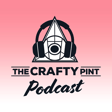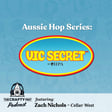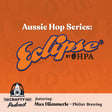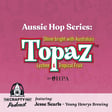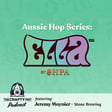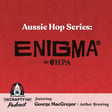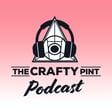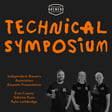
Behind The Scenes At The CIBD Convention 2025
In early March, The Crafty Pint headed to Hobart for the 38th Chartered Institute of Brewers and Distillers Asia Pacific Convention. The event brings together brewers, distillers and suppliers from all over the globe for several days of technical presentations and networking with the aim of improving standards and education for technical brewers and distillers.
To provide a behind-the-scenes slice of what CIBD is all about, we recorded three distinct, shorter-than-usual podcast interviews for this episode.
First up, you’ll hear Will and Craig chat to CIBD CEO Tom Shelston and president Dr Megan Sheehy PhD about the organisation's purpose, history and why there’s now a C in front of IBD.
Next up is Carlos Ruiz, chief sales officer at HVG, a major German hop grower and supplier. Against the backdrop of the craft lager renaissance, we wanted to pick his brains about the growing interest from craft brewers in traditional German hops as well as his impressive journey in the Bavarian beer industry, one that starts in Venezuela.
Finally, we look more locally and talk to Tim Bishop, co-founder and head brewer at Easy Tiger, about his experience at CIBD and his brewery’s story. Based on Tassie’s northeast coast, the brewery is as tiny as it is unique, complete with a café, multiple restaurants and a cinema.
Ahead of those chats, James and Will cover the industry’s recent news, including Last Man Standing's takeover of the former home of Newstead, and Nail Brewing’s impending 25th anniversary.
We’re excited to announce that Pint of Origin is return for a thirteenth time – touching down in Melbourne from May 8 to 19, and to bring back Bintani's Sam Bethune with more ways breweries can get the most out of their ingredients.
We’re also eager to see more submissions for the Bluestone Yeast Brewery of the Month and our Have You Done A Rallings? campaign celebrating the country's good beer citizens.
Start of segments:
- 14:26 – Tom Shelston & Dr Megan Sheehy
- 27:37 – Bintani Brewery Booster
- 31:29 – Carlos Ruiz
- 54: 55 – Tim Bishop
Relevant links:
- CIBD Hobart
- HVG
- Easy Tiger
- Last Man Standing Take Over Newstead
- Tough As Nail
- Pint of Origin 2025
- Bintani
- Nominate a good beer citizen
- Nominate a Bluestone Yeast Brewery of the Month
To find out more about supporting the show or otherwise partnering with The Crafty Pint, contact craig@craftypint.com.
